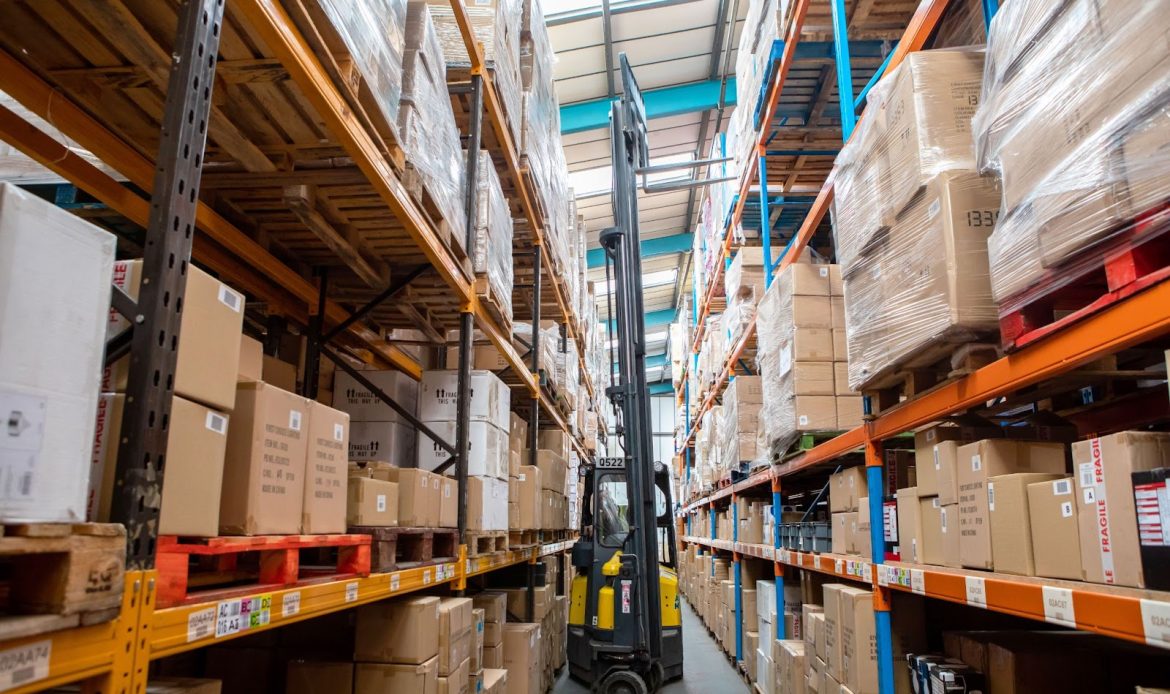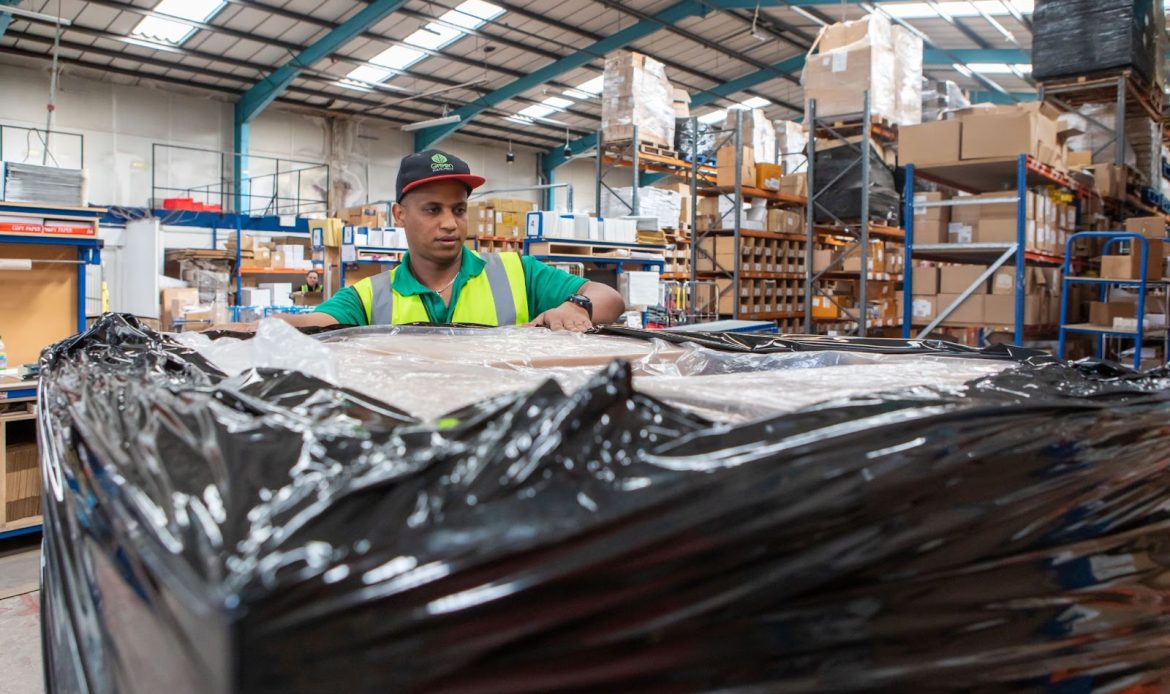Article Takeaways
- EPR shifts packaging costs to businesses.
- Businesses must track and report packaging data.
- Fees depend on packaging recyclability.
- Sustainable packaging reduces compliance costs.
- Large businesses report biannually, small businesses annually.
- Non-compliance leads to financial penalties.
- Eco-friendly packaging lowers regulatory fees.
- Fulfilment partners simplify EPR compliance.
- Sustainability boosts brand value and customer trust.
Is your eCommerce business prepared for the significant regulatory changes coming to UK packaging in 2025? The new Extended Producer Responsibility (EPR) laws will dramatically shift costs from taxpayers to businesses, and unprepared retailers face hefty penalties. Your packaging decisions today will directly impact your bottom line tomorrow.
For eco-conscious online retailers, understanding these regulations isn’t merely about compliance, it’s an opportunity to align your sustainability values with business practices while gaining a competitive advantage in an increasingly regulated marketplace. Partnering with a sustainable and innovative logistics provider like Green Fulfilment, a B Corp-certified company, can be key to navigating these changes. Green Fulfilment emphasises eco-friendly practices, and a people-centric approach and leverages advanced technology to ensure efficient order fulfilment.
In this comprehensive guide, we’ll break down what Extended Producer Responsibility means for your business, which companies are affected, and how partnering with a sustainable fulfilment provider can help you navigate these regulations successfully.
What is Extended Producer Responsibility?
Understanding the New Packaging Regulations
Extended Producer Responsibility represents a fundamental shift in UK waste management policy. This regulatory framework makes businesses financially responsible for the entire lifecycle of packaging they introduce to the market.
Unlike the current system, where packaging recycling costs fall primarily on taxpayers and local authorities, the new regulations transfer this financial burden to businesses that produce, use, or import packaging, following the “producer pays” principle.
The legislation aims to:
- Incentivise the use of easily recyclable packaging materials
- Substantially reduce unnecessary packaging waste
- Boost recycling rates across the UK
- Provide better funding for waste collection and recycling infrastructure
If you’re already committed to adopting eco-friendly and sustainable packaging, you’re taking the right steps to minimise your future compliance costs.

Who is Affected by the New Packaging Regulations in 2025?
Not every business falls under these obligations. Your responsibility depends on specific thresholds and activities:
Size Thresholds for Compliance
Your business is likely obligated under the Extended Producer Responsibility regulations if:
- You’re a UK business with an annual turnover of £1 million or more, AND
- You were responsible for importing or supplying more than 25 tonnes of packaging to the UK market in the previous calendar year
The regulations further classify businesses as:
- Small organisations: Annual turnover between £1-2 million and handling over 25 tonnes of packaging, OR turnover over £1 million and handling 25-50 tonnes of packaging
- Large organisations: Annual turnover over £2 million AND handling more than 50 tonnes of packaging
Qualifying Activities Under the Regulations
Your business is likely affected if you:
- Supply packaged goods under your brand – Selling products with your logo or distinctive mark
- Place goods into packaging – For your own business or others
- Import packaged products – Bringing packaged goods into the UK
- Own an online marketplace – Operating a platform where non-UK businesses sell to UK consumers
- Hire or loan reusable packaging – Such as pallets or transit containers
- Supply empty packaging – Manufacturing or distributing packaging to others
If these criteria align with your business activities, you’ll need to prepare for compliance immediately.
Types of Packaging Under the New Regulations
Understanding the different classifications of packaging is crucial for accurate reporting and compliance planning.
Household vs Non-Household Packaging
- Household packaging: Packaging that ends up in domestic waste streams, including primary packaging for consumer goods and eCommerce delivery packaging
- Non-household packaging: Industrial and commercial packaging used in B2B contexts
Packaging Classifications
- Primary packaging: Direct product contact (e.g., bottles, food containers)
- Secondary packaging: Grouping products (e.g., cardboard carriers)
- Tertiary packaging: Bulk transport protection (e.g., pallets, stretch wrap)
- Shipment packaging: Customer delivery materials (e.g., eCommerce boxes, mailers)
Your fees will primarily apply to household packaging, but reporting requirements extend to all packaging types.

Key Compliance Requirements for eCommerce Businesses
For online retailers, compliance with Extended Producer Responsibility involves several critical actions:
Data Collection and Reporting
- Mandatory since 2023: All obligated businesses should have begun recording packaging data from January 2023
- Regular reporting cycles: Large businesses report every six months, small businesses annually
- Detailed data requirements: Tracking packaging material, weight, type, format, and recyclability characteristics
Registration and Fees
- Account creation: Required via the government’s EPR portal
- Fee implementation: Initially deferred but starting in 2025 based on 2024 data
- Waste management fees: Applied primarily to household packaging
- Recyclability assessment: From 2025, packaging will be categorised as “widely recyclable,” “recyclable with specialist infrastructure,” or “difficult to recycle”
Some eCommerce businesses worry these regulations will increase administrative burdens. As Green Fulfilment’s Managing Director has advocated, policies need to balance environmental protection with practical business considerations.
Financial Implications for Online Retailers
With Extended Producer Responsibility fees starting in 2025, understanding the financial impact on your eCommerce business is essential:
Fee Structure
- Waste management fees: Covering collection and processing of household packaging waste
- Scheme administration costs: Funding the operation of the system
- Environmental regulator charges: Covering regulatory oversight
Modulated Fees Based on Recyclability
From 2026, fees will be “modulated” based on packaging recyclability:
- Lower fees: Applied to easily recyclable materials and formats
- Higher fees: For difficult-to-recycle or non-recyclable packaging
This approach incentivises businesses to choose sustainable packaging options that will carry lower costs under the new regulatory framework.
How Green Fulfilment’s Sustainable Solutions Reduce Compliance Burden
Working with a B Corp-certified fulfilment partner like Green Fulfilment can significantly reduce your Extended Producer Responsibility burden:
Eco-Friendly Packaging Solutions for Regulatory Compliance
Our sustainable fulfilment services include access to recyclable, biodegradable, and reduced-plastic packaging options that would qualify for lower fees under the modulation system.
Green Technology for Compliance Data Management
Green Fulfilment’s proprietary Go Green Platform helps track all packaging data required for compliance, streamlining your reporting process while identifying opportunities to reduce packaging waste.
With over 13 years of experience in sustainable fulfilment and a 95% customer satisfaction rate, our technology-driven solutions ensure your business can meet Extended Producer Responsibility obligations efficiently.
Expert Packaging Consultation
Our team of sustainability experts provides tailored guidance on compliance, helping you:
- Assess your current packaging against regulatory criteria
- Identify opportunities to reduce packaging weight and improve recyclability
- Implement data collection systems that align with requirements
- Choose packaging solutions that minimise environmental impact and compliance fees

Preparing Your eCommerce Business for Extended Producer Responsibility
Follow this strategic roadmap to prepare for the new requirements:
- Audit your packaging portfolio: Document all materials, weights, and formats currently used
- Determine your obligation status: Calculate your turnover and packaging tonnage
- Implement data tracking systems: Set up processes to consistently monitor packaging data
- Review packaging choices: Assess recyclability and explore sustainable alternatives
- Budget for upcoming fees: Prepare financially for costs from 2025 onwards
For eCommerce businesses focused on growth, efficient inventory management goes hand-in-hand with compliance, helping reduce excess stock and associated packaging waste.
Business Benefits of Embracing the New Packaging Regulations
Forward-thinking eCommerce brands can gain advantages through proactive compliance:
Competitive Edge Through Sustainability
With 73% of UK consumers preferring brands with sustainable packaging, adapting early to Extended Producer Responsibility requirements can differentiate your business in the competitive eCommerce landscape.
Innovation Catalyst
The financial incentives within the regulations drive creative packaging solutions that may reduce costs, improve product protection, and enhance customer experience simultaneously.
Brand Value Alignment
For ethical and sustainable brands, embracing these regulations aligns actions with values, building consumer trust and loyalty in an increasingly eco-conscious marketplace.
Many successful Great British Entrepreneur finalists have demonstrated how sustainability initiatives like proactive compliance can drive business success.
Sustainable Packaging for Regulatory Compliance
Preparing for Extended Producer Responsibility regulations requires thoughtful assessment of your current packaging practices and identifying opportunities for improvement.
At Green Fulfilment, we work with eCommerce businesses to evaluate their packaging against the upcoming regulatory requirements and implement sustainable solutions that align with both compliance needs and brand values.
Our approach focuses on practical improvements such as:
- Transitioning from mixed materials to single-material recyclable packaging
- Replacing plastic void fill with paper-based alternatives
- Optimizing package sizes to reduce material usage
- Selecting packaging components that will score well in recyclability assessments
Green Fulfilment’s Comprehensive Support for Extended Producer Responsibility
As a B Corp certified fulfilment provider dedicated to sustainability, Green Fulfilment is uniquely positioned to help eCommerce businesses navigate the new requirements:
Sustainable Packaging Solutions for Compliance
Our eco-friendly options include:
- Recyclable cardboard and paper-based materials that score well in recyclability assessments
- Biodegradable void fill and protective packaging
- Right-sized packaging to minimise material use and regulatory fees
- Reusable shipping containers for appropriate products
Technology-Driven Support
Our Go Green Platform provides:
- Detailed tracking of packaging materials, weights, and formats
- Automated data collection for regulatory reporting
- Insights to identify packaging optimisation opportunities
- Full integration with your eCommerce platforms for seamless fulfilment
End-to-End Fulfilment Services
Beyond Extended Producer Responsibility compliance, our comprehensive fulfilment services include:
- Multi-channel integration with your eCommerce platforms
- Efficient order processing and inventory management
- Carbon-conscious shipping options
- Reliable customer service from our experienced team
Partner with Green Fulfilment for Extended Producer Responsibility Compliance
The new packaging regulations represent a significant shift for UK eCommerce businesses. By partnering with Green Fulfilment, you gain not just a fulfilment provider but a sustainability ally equipped with the expertise, technology, and solutions to help you navigate compliance successfully.
Our B Corp certification, award-winning sustainability practices, and dedicated expertise in eco-friendly fulfilment make us the ideal partner for eCommerce brands seeking to turn Extended Producer Responsibility regulations from a challenge into an opportunity.
As demonstrated by our award-winning leadership in sustainable business practices, we’re committed to helping eCommerce brands thrive while minimising their environmental impact.
Ready to make your fulfilment more sustainable and compliance-friendly? Contact Green Fulfilment today to learn how our technology-driven solutions, sustainable packaging expertise, and 13+ years of experience can support your eCommerce business’s growth and compliance needs.
Frequently Asked Questions About Extended Producer Responsibility
How is EPR different from the Plastic Packaging Tax?
While both target packaging sustainability, the Plastic Packaging Tax specifically applies to plastic packaging with less than 30% recycled content, whereas Extended Producer Responsibility covers all materials and makes producers responsible for end-of-life management costs.
When do I need to start reporting my packaging data?
Data collection should have begun in January 2023. Large organisations report every six months, while small organisations will report annually from 2025.
What penalties exist for non-compliance with the regulations?
Non-compliance can result in significant financial penalties, with late fees for missed deadlines and potential enforcement action for persistent non-compliance.
How can I reduce my compliance fees?
Choose widely recyclable materials, minimise packaging weight, eliminate unnecessary packaging components, and consider reusable options where appropriate.
